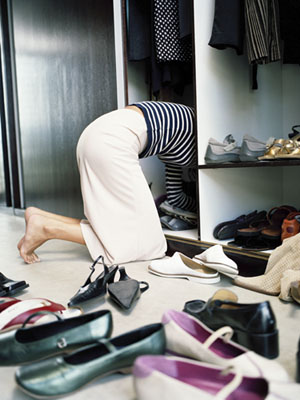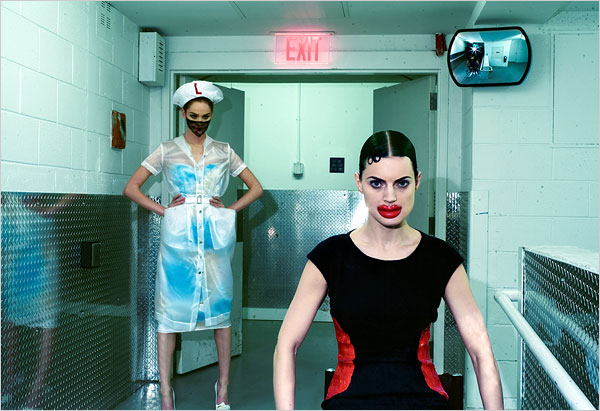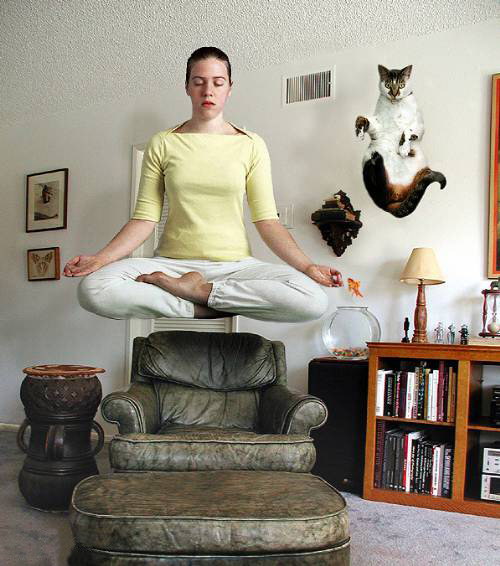December 04, 2023

It’s time to clean out my cancer closet. Between living with cancer for nine years and researching and writing a book on young adult cancer for five years, I’ve accumulated an abundance of oncology articles, books, and magazines.
The task is more emotional than I anticipated. Lodged in my collection of scientific data are notes I scribbled in the margins, like: “None of these stats apply to me. Is it time to abandon Western medicine?” I’m still am not cured. Thankfully I have learned how to manage my cancer better now than when I wrote that note. None the less, it’s sad reading my paper trail of desperation.
It’s hard getting rid of my books on palliative and end of life care. They were invaluable in helping me write resource sections for Everything Changes. A loud voice says, “Hang on to these Kairol, you might need them someday for your own care.” Cleaning my cancer closet is highlighting that over the past two years, I’ve come to expect that I am going to get a secondary form of cancer. I hope I am wrong. I don’t get worked up about it. But it’s a thought I can’t shake.
Some survivors make scrapbooks about their treatment. When I last moved apartments, I culled my collection of get well cards from a mountainous box to one manila envelop. I might even want to ditch that now too. Over time, I cling less to my cancer memorabilia. Yet, I still commemorate my cancer care almost daily through my writing.
I like my perspectives on cancer care. I want to continue blogging, writing columns, speaking, and working on special projects with organizations. But lately I’m making a shift from having two feet in the cancer world to one foot in and one foot out. For example, at the end of this month, I’m stepping down as co-host on The Stupid Cancer Show.
My identity as a cancer patient is shifting. It isn’t easy. But it is good. Growing pains are better than cancer pain.
How much do you want to remember you cancer care and how much do you want to move on? Do you save research information or get well cards? Do you ever anticipate getting a secondary form of cancer?
Read Everything Changes: The Insider’s Guide to Cancer in Your 20s and 30s to learn how Geoff’s identity changed as a 13 year survivor diagnosed at 22.


May 11, 2023

I like my body and I have no problem wearing short skits or low cut shirts. But as a young adult cancer patient I shudder at the exposure of a hospital gown.
I excel at finding new fashionable ways to tie on a hospital gown, using excess fabric to craft fancy bustles, pleats, and empire waistlines. My creations are often inspired by beat up copies of Vogues sitting next to me in the ladies waiting room.
Despite my loathing for hospital gowns, I recognize that those fly-away openings and simple, barely-there closures exist for easy access. In the end, forget designer garbs, I’d rather docs be able to access my body – especially in case of emergency.
An article in the Wall Street Journal today describes a new grant by the Robert Wood Johnson foundation that will support the creation of new hospital wear. They also report on the Hackensack University Medical Center in New Jersey that commissioned new hospital wear by designer Nicole Miller. The argument exists that new privacy promoting gowns that will boost patient morale.
None of us want our asses hanging out as we stroll the unit with our poles. And, I think patient moral is incredibly important – it helps us comply with doctors orders. But, I think our moral suffers way more from administrative issues, cost issues, and lack of face time with doctors. Given that these new fashion gowns will cost more money to produce and purchase, I say the Robert Woods Johnson foundation and hospitals find other ways to spend their time, dough, and new discovery resources.
What do you think? How important is it to you that we design new hospital gowns? What do you think about current gowns? If you were to redesign an new gown what would it look like? Share any good hospital gown stories you have.


March 23, 2023

Do the words “yoga healing” conjure images of spa-like relaxation, chiming bells, and waterfalls? This nirvanic bliss may be the end result, but any proactive patient knows that even when it comes to alternative medicine and yoga, a lot of hard work goes into creating a good, safe, personal practice.
How do people living with cancer and other chronic illnesses evaluate alternative medicine practices such as yoga? What exercises and yoga postures are safe for cancer patients? What’s the difference between Ashtanga, Iyengar, Birkam, and restorative yoga, and what form of yoga is best for cancer patients? How can you find a studio that is friendly to cancer survivors? How often should you practice yoga and will it be affordable? What kinds of exercises can young adult cancer survivors do at home?
Listen tonight to the Stupid Cancer Show, at 9 PM EST when co-host Matthew Zachary and I will be talking about yoga and cancer with experts Kelly McGonicgal, Editor in Chief of The International Journal of Yoga Therapy, and Halle Tecco founder of Yoga Bear.
Have you engaged in yoga as a cancer survivor, or someone living with another kind of illness or disability? What was your experience? Was it a physical practice, spiritual practice or equal amounts of both? Did you create a regular routine of going to class or practicing at home, or was yoga more of an off and on activity for you?


February 16, 2023

Want to find the best vegan burger shack in town or a late night sushi-karaoke bar? Turn to Zagat. Want to find a good doctor? Now you can turn to Zagat too. WellPoint, one of the country’s largest health benefits companies, is contracting Zagat to create a patient review system of doctors. How egalitarian, how patient powered, how much more can you miss the mark?
Italian Vogue?
This new Zagat system of voting and popularity contests will lead young adult cancer patients (and others) towards making less educated and poorer choices about their doctors. Here are a few reasons why:
1. What if 42 patients give their oncologist a high score because they love the Italian Vogue mags in the waiting room and the friendly smile of their oncologist but don’t know that this doc has four violations pending against her with the state medical board? Zagat is not the answer.
2. What if six patients give their oncologist a low rating because the wait is long and the staff is rude, but they don’t know that this oncologist just flew to MD Anderson last week as the foremost expert in the world on your specific disease type and stage, and presented a paper on a new molecular treatment that has fewer side effects and avoids the need for surgery? Zagat is not the answer.
3. What if a patient on Zagat has extensively researched an oncologist, stating he is the most highly educated in the city in lymphoma care, but the patient is basing this information only on the fact that the doctor graduated from Harvard? Harvard alone does not a good doctor make. Has this doctor published research? Is he or she an active member of the international oncology community? How do they continue to educate themselves? Zagat is not the answer.
Taking Candy from Strangers
If you’re visiting Chicago for the first time and trust a stranger on the street to give you a recommendation for the best pizza in town, the stakes are not so high if their recommendation sucks. But we are talking about cancer, not pizza. You should not take the advice of strangers but rather turn to the most educated, medically astute friends, colleagues, and doctors you know to become your advisors – not a group of joe schmoes on-line. (I talk more extensively about this in the Working The System section of my book Everything Changes.)
I’m not alone in this thinking. Most of the medical ethicists and docs interviewed on the subject in the New York Times agree.
How you do decide what doctors to use? Do you think the Zagat guide is a good idea? Would you use it?



![]()
![]()



 “Everything Changes is, without doubt, the most forthright, emotionally sophisticated, and plain-old valuable book of its kind I've seen.”
“Everything Changes is, without doubt, the most forthright, emotionally sophisticated, and plain-old valuable book of its kind I've seen.”












